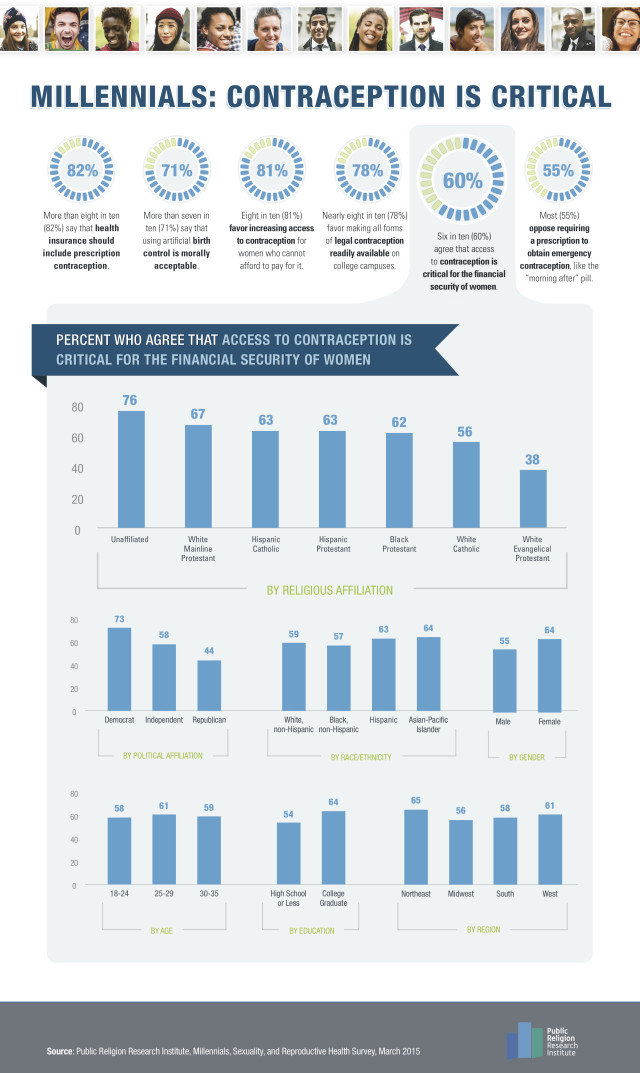Contraception’s cost, accessibility, and morality have been hotly debated in recent years—but for millennials, contraception is hardly a controversial topic. This is according to our latest survey, which explores the attitudes of 2,300+ Americans, age 18-35, on issues of sexuality, reproductive health, and public policies on abortion and contraception.
The survey reveals that millennials disagree on a number of sexual health issues, including the usefulness of sex education, the legality of abortion, and the morality of sexual behaviors, among other topics. But nearly all subgroups have majorities that agree on one thing: that contraception is critical for the financial security of women.
[Click to enlarge.]
 Six in 10 (60 percent) millennials—including 55 percent of men and 64 percent of women—agree that access to contraception is critical for the financial security of women, while more than one-third (36 percent) disagree.
Six in 10 (60 percent) millennials—including 55 percent of men and 64 percent of women—agree that access to contraception is critical for the financial security of women, while more than one-third (36 percent) disagree.
This attitude stretches into every religious affiliation, political affiliation, race and ethnicity, age, education level, and geographical region—save two subcategories: white evangelical Protestant and Republican millennials.
Majorities of religiously unaffiliated (76 percent), white mainline Protestant (67 percent), Hispanic Catholics (63 percent), Hispanic Protestants (63 percent), black Protestant (62 percent), and white Catholic (56 percent) millennials agree that easily accessible contraception is critical to a woman’s financial security. The only outlier is white evangelical Protestant millennials: only 38 percent say on contraception is important to a woman’s financial wellbeing, while 62 percent disagree.
Additionally, majorities of Democratic (73 percent) and independent (58 percent) millennials agree on contraception’s significance, while only 44 percent of Republican millennials say the same.
What’s more, majorities of millennials support other contraception policies: 82 percent of millennials say health insurance should include prescription contraception; 71 percent say that using artificial birth control is morally acceptable; 81 percent favor increasing access to contraception for women who cannot afford to pay for it; 78 percent favor making all forms of legal contraception readily available on college campuses; and 55 percent oppose requiring a prescription to obtain emergency contraception, like the “morning after” pill.
Read more findings from the “How Race and Religion Shape Millennial Attitudes on Sexuality and Reproductive Health” survey.




